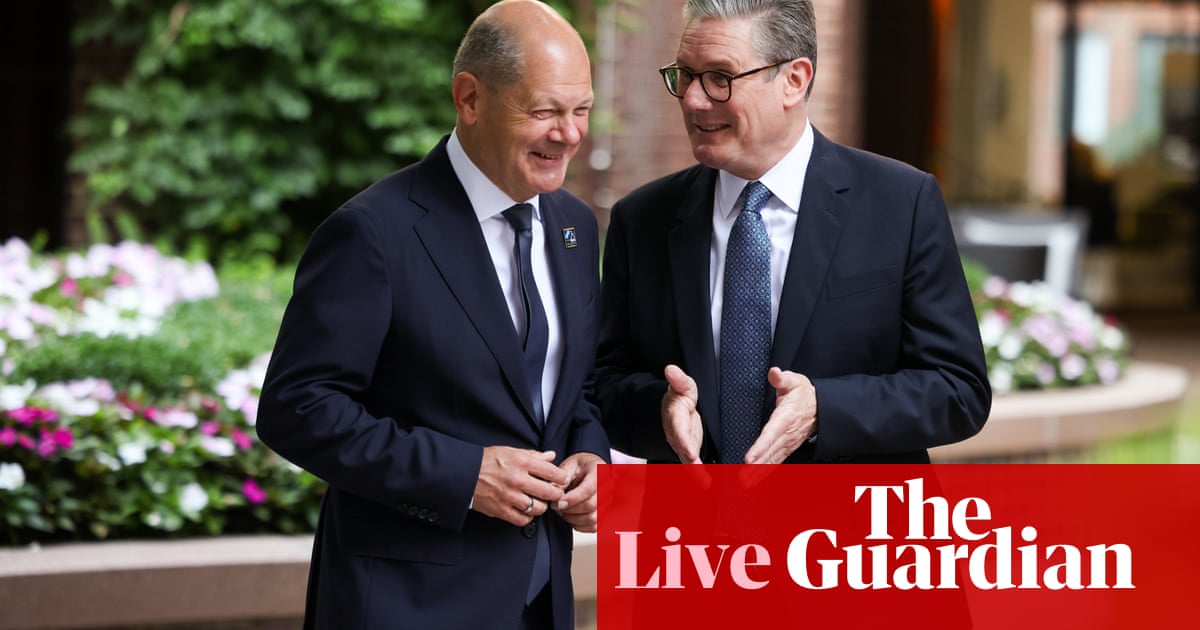Key events

Rachel Hall
Lots of pensioners will need support this winter who won’t be eligible for the new winter fuel payment threshold, an ex-Labour minister has warned.
Speaking to BBC Radio 4’s Today programme, Chair of the Committee on Fuel Poverty Caroline Flint said that although the existing scheme was “poorly targeted”, since not all the 10 million pensioners need it to pay their bills, the new plans are too narrow.
“There needs to be consideration in the budget in the autumn of a winter plan for many, many people – pensioners and other households,” she said.
“There are some different ways in which the government could think about mitigating the impact of the loss of the winter fuel payment, and direct[ing] it those more in need. But again there are be people who will be above the pension credit threshold that currently stands as the option that need more help as well.”
Flint suggested several solutions, including endorsing consumer champion Martin Lewis’ suggestion to use council tax bands A-D, since these serve as a proxy for the neighbourhoods people live in and the income bands in those areas.
She also suggested widening the pool of people eligible for the warm homes discount.
Flint said she hoped there would be “a better plan going forward” coming out of the energy summit happening on Wednesday, which will see energy minister Miatta Fahnbulleh meet with energy supplier CEOs and Ofgem, Energy UK and Citizens Advice.
In the longer term, Flint said it was important to have “secure sources” of energy, such as renewables and low carbon options, to reduce costs, as well as to promote a “fabric first approach” to make homes warmer and reduce energy bills.

Anna Bawden
Vapes should only be sold from “behind the counter”, like cigarettes, and not be on display in shops, according to the British Medical Association.
In a report published on Wednesday, the doctors’ union called on ministers to introduce legislation to tackle the “growing epidemic” of vaping in the UK.
According to recent analysis by Action on Smoking and Health (Ash) 5.6 million adults in Britain vape, about 11% of the adult population. Vape use among children and young people has increased almost six-fold in the last decade, with 7.6% of 11-17 year olds now vaping, either regularly or occasionally, compared with 1.3% in 2014.
Vapes can help some people stop smoking, but they are not risk-free. Last year, the World Health Organization called for “urgent action” to protect children from e-cigarettes. Vaping can lead to nicotine addiction, while some devices have been found to contain other harmful substances, such as lead, or even spiked with the synthetic drug spice.
Labour announced in July’s king’s speech that it would revive the previous government’s tobacco and vapes bill. The Conservative’s proposed legislation included measures to ban disposable vapes and restrict flavours and packaging, but was shelved after the general election was called. Details of the exact regulations Labour wants to introduce have yet to be published.
The BMA said given the rising number of children and young people trying and smoking vapes, the government “must not shy away from taking brave action”.
You can read the full piece here:
Earlier today, Keir Starmer met German president Frank-Walter Steinmeier at the Bellevue Palace in Berlin, the first British prime minister to visit the palace since David Cameron in 2015.
According to the PA news agency, Steinmeier had made the invitation after they met earlier this summer at Euro 2024.
Starmer signed the palace guestbook in the entrance hall, which had been decorated with red, white and blue flowers, before holding a private bilateral meeting with Steinmeier.
Keir Starmer meets Olaf Scholz in Berlin
Keir Starmer has arrived at the German chancellery for his meeting with Olaf Scholz.
He was welcomed by Scholz and an honour guard of German soldiers as a military band played God Save The King and the German national anthem. The two men then went inside the chancellery for their bilateral meeting, at which they are expected to discuss a proposed treaty between the UK and Germany as well as other matters including the war in Ukraine.
Good morning and welcome to our coverage of UK politics as Keir Starmer meets the German chancellor, Olaf Scholz, on a flying visit to Berlin.
The British prime minister says he wants to “turn a corner on Brexit” with talks expected to focus on defence and trade.
But Nils Schmid, the foreign affairs spokesperson for the SPD’s parliamentary group, told BBC Radio 4’s Today that Germany would like a deal on youth mobility, despite UK reservations about anything that would open the door to free movement of labour.
More on this shortly. In other developments:
-
Keir Starmer has given his strongest hint yet of tax rises to come in October’s budget, warning he will have to make “painful” decisions after finding what Labour says is a £22bn black hole in the public finances. Giving his first major speech from No 10 since becoming prime minister, Starmer said on Tuesday it would take years to clean up after the previous Conservative governments, which he said had overseen “14 years of rot”.
-
Chancellor Rachel Reeves is scheduled to be in Glasgow today on a growth-related visit. She will make a trip to a manufacturing centre and host a business roundtable.
-
Energy firm bosses will meet the government on Wednesday to discuss support for vulnerable households ahead of the winter. Ofgem has recently increased the price cap and it comes as the government is withdrawing winter fuel payments from millions of pensioner households not in receipt of benefits.
-
Scotland’s financial watchdog has said Scottish ministers are largely responsible for a spending crisis that is leading to deep cuts to non-essential services. The Scottish Fiscal Commission, which has a similar role to the Office for Budget Responsibility in London, said ministers in Edinburgh had spent heavily on public sector pay deals without proper planning.
-
A man is due to be sentenced for throwing a coffee cup at Reform UK leader and Clacton MP Nigel Farage on his battlebus during the general election campaign. Josh Greally, 28, of Clowne, Derbyshire, admitted a public order offence and will be sentenced today at Barnsley magistrates court.
